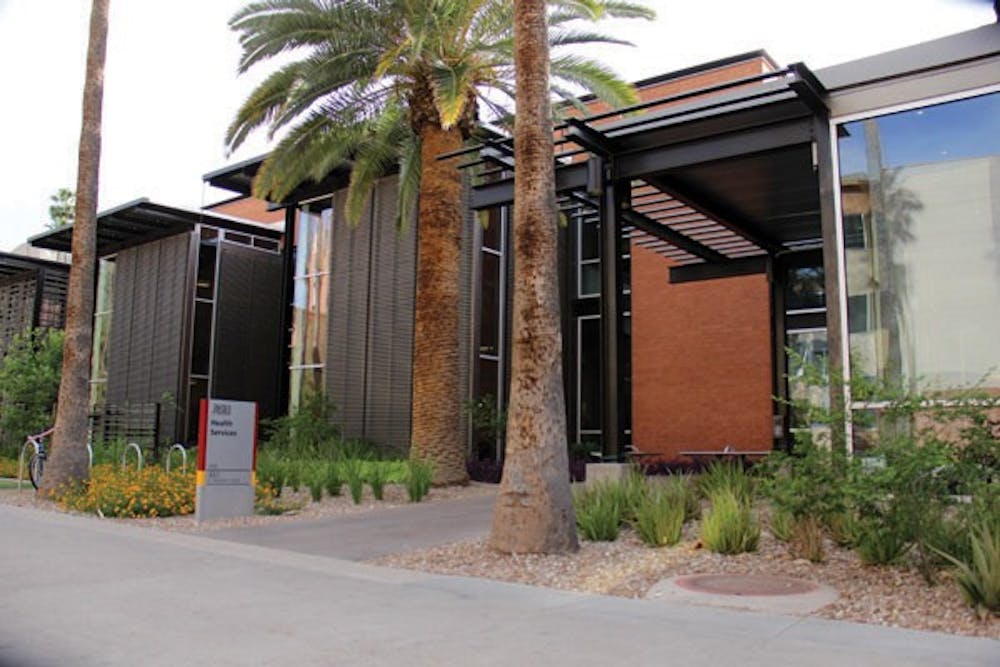New friends, new school and living on your own. It's not unusual if new students begin to feel anxious or stressed along with the excitement and independence that is a part of the transition to college.
The Higher Education Research Institute has conducted a yearly survey for more than a decade measuring students’ mental health. The most recent 2014 study suggested that student emotional health has hit its lowest level yet. Out of more than 153,000 students surveyed at 227 universities, more than half of the students reported experiencing “overwhelming anxiety” during the past school year.
Aaron Krasnow, the associate vice president of ASU Counseling and Health Services, said ASU students report similar levels of stress and anxiety as students across the country.
“One universal is college adjustment as a stressor," Krasnow said. "Adjusting to new things is difficult and puts pressure on people to navigate new experiences and environments. One example is the transition from a home environment to an 'away' environment of college. For the current generation, it might mean how to navigate communication with family with many new communication avenues.”
With the increase in students seeking help, universities have also taken an increased responsibility in assuring students’ well-being. Many colleges offer students occasional acupuncture, meditation and yoga classes, as well as therapy dog campus visits.
“There are studies that show links between puppy-petting and stress decrease,” communications junior Taylor Gilliam, who has participated in the therapy dog days, said. “Plus, puppies in general. It’s a win-win for everybody involved.”
Active Minds is a nonprofit that began as a student-run organization at the University of Pennsylvania. The foundation encourages students to seek help and treatment for mental illness using campus resources.
The ASU chapter of Active Minds holds activities on campus such as arts and crafts, yoga and mindfulness training in which students can participate and learn about the organization, Tina Violetta, president of Active Minds at ASU, said.
“Getting involved, not being fearful of talking to people, reaching out and participating in students groups — even if its just going out and having coffee — and networking with other students is a great way to feel like you’re not alone,” Violetta said.
According to the Journal of Affective Disorders, those with anxiety and depressive disorders are much more likely to pick up habits such as smoking, poor diet, poor physical activity and insomnia. These habits, combined with stress and anxiety, only increase the negative effects of these mental strains.
“It’s important to let other students know that they’re not alone, and there’s help right on campus for everyone’s mental health needs. More people are suffering than you know,” Alyse Ruriani, a student at Maryland College of Art and Design and Active Minds intern, said.
While the numbers of students reporting mental illness may be rising, it also could be taken as a sign that the stigma behind mental health is breaking down.
As more students seek help, universities offer more resources and help with managing stress and anxiety, Maggie Bertram, Active Minds' associate director of training and education, said.
“There are more resources (on campus) than you typically think of,” Bertram said. “Even if someone doesn’t qualify for an anxiety disorder diagnosis, the counseling offices will offer solutions for stress management.”
Active Minds emphasizes that there is no need go without treating a mental illness, and outlines the resources students have available on campus. The foundation also offers a guide to knowing the signs and symptoms of mental health disorders.
“There is no better way for people to break the stigma than to talk about their own experiences,” Bertram said. “It’s OK to get help.”
Editor's Note: If you're having trouble with any stress or depression, please contact ASU Counseling Services. You can call or walk into locations on any of the four campuses during the day or call ASU's EMPACT hotline after hours or on weekends at 480-921-1006.
Related Links:
Barrett, the Honors College commits to bringing mental health awareness to ASU
Mental health and you: facts and on-campus resources for ASU students
Reach the reporter at jmgalla6@asu.edu.
Like The State Press on Facebook and follow @statepress on Twitter.




